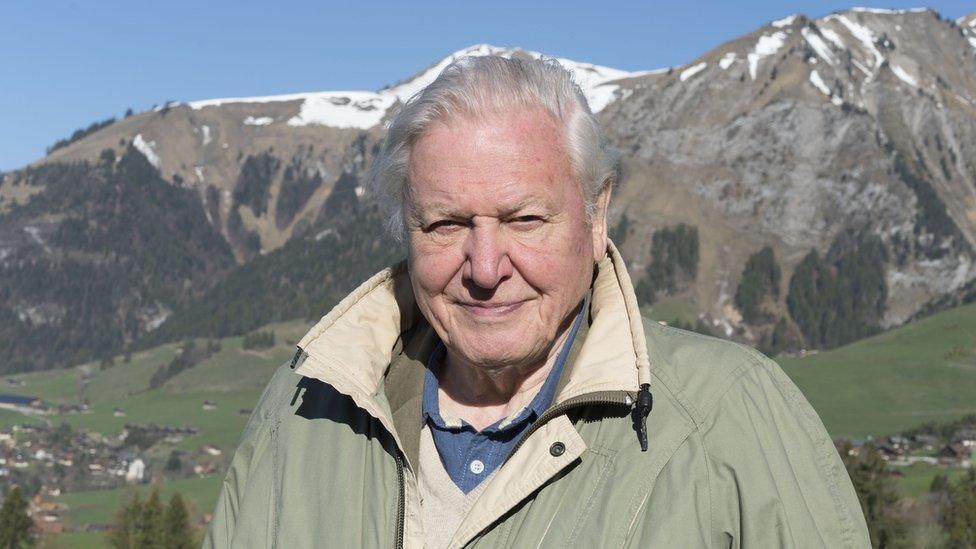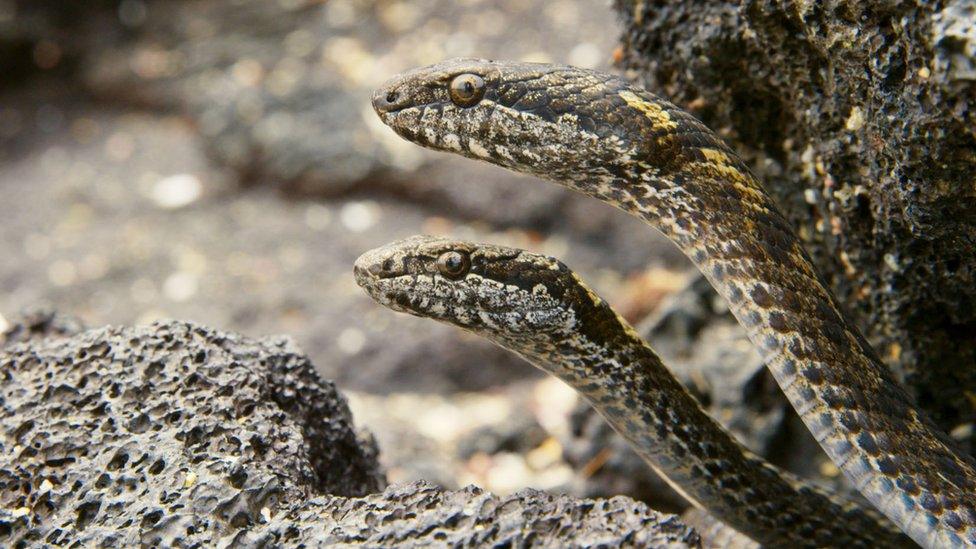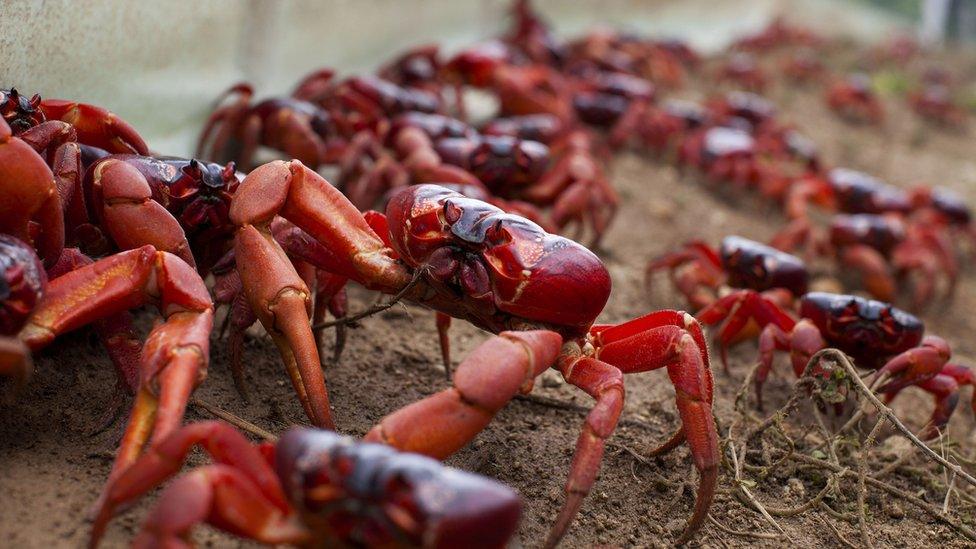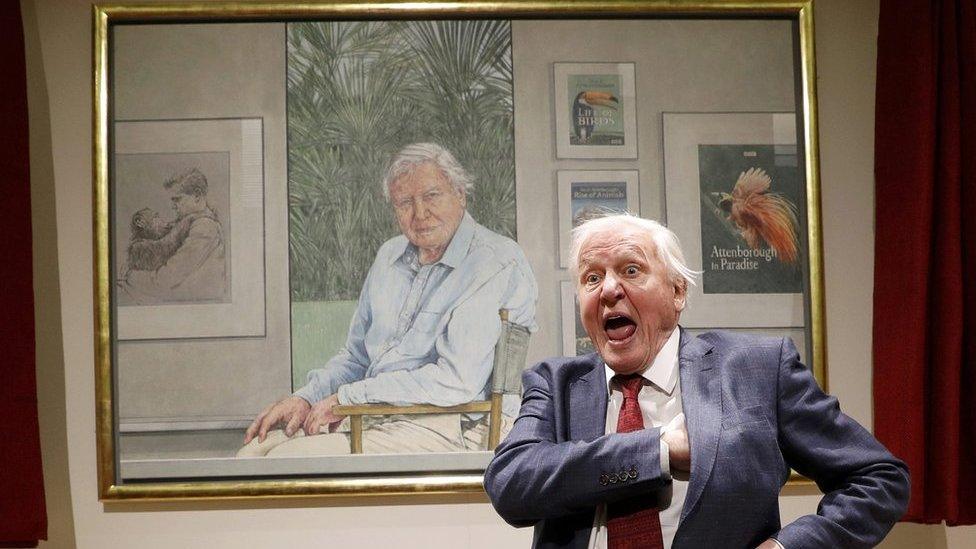Planet Earth II: Nine million tune in to Sir David Attenborough show
- Published
Planet Earth II - behind the scenes
More than nine million people tuned in to the first episode of Sir David Attenborough's Planet Earth II on BBC One on Sunday, overnight ratings show.
An average of 9.2 million watched racer snakes, penguins and Komodo dragons on the sequel to the landmark natural history series from 20:00 to 21:00 GMT.
At the same time on ITV, 6.5 million watched The X Factor Results.
The day's most watched programme was the Strictly Come Dancing results show, with 10.1 million on BBC One at 19:15.

Sir David has narrated the six episodes of Planet Earth II

Racer snakes in the Galapagos Islands were 'the stuff of nightmares'
Planet Earth II comes a decade after the original Planet Earth. The new series began with Sir David, now 90, floating above the Alps in a hot air balloon.
The first of six episodes focused on islands, taking viewers to see red crabs on Christmas Island, pygmy three-toed sloths on Escudo, off the coast of Panama, and lemurs in Madagascar.
But the section that gripped critics and social media users the most was the sight of baby iguanas being chased by racer snakes in the Galapagos Islands.
"This was thrillingly, and with no exaggeration, the stuff of nightmares," the Daily Telegraph TV critic Gerard O'Donovan, external wrote.
He said Planet Earth II had set "yet another quality benchmark".
He wrote: "On the basis of this opener, Planet Earth II has surpassed the previous series - it was one of the most stunningly vivid and engaging natural history films I've ever seen."

Red crabs on Christmas Island are being threatened by vast colonies of ants
In The Daily Mail, Christopher Stevens, external declared: "It was spectacular, it was beautiful, it was magical."
He continued: "Ever since Zoo Quest in the Fifties, the Attenborough technique has been to tell stories. He constructs his tales with the skill of a novelist, and presents them as grippingly as a Shakespearean actor."
The Times's Andrew Billen, external took issue with the way Sir David roots for one species over another in a scene featuring predators, such as where the red crabs were being threatened by vast colonies of ants that originally arrived on visiting ships.
Billen also noted his "anthropomorphism can also be shameless" when imposing human characteristics on animals.
"Yet yesterday I realised I no longer mind," Billen added. "He wants us to fall in love with a natural world embarrassingly red in tooth and claw. To do that he needs to make us empathise with its most colourful and jeopardised inhabitants."

Follow us on Twitter @BBCNewsEnts, external, on Instagram at bbcnewsents, external, or if you have a story suggestion email entertainment.news@bbc.co.uk, external.
- Published23 September 2016

- Published8 May 2016

- Published26 June 2015
